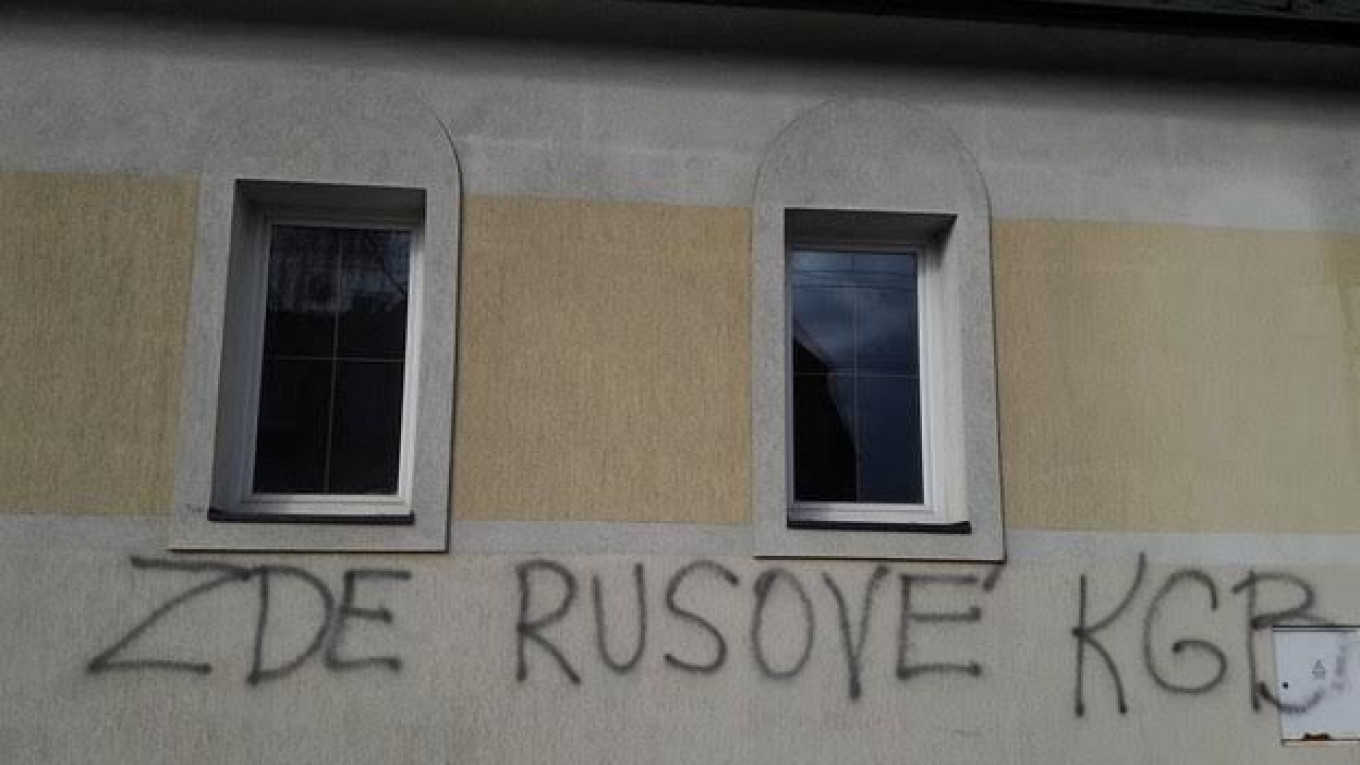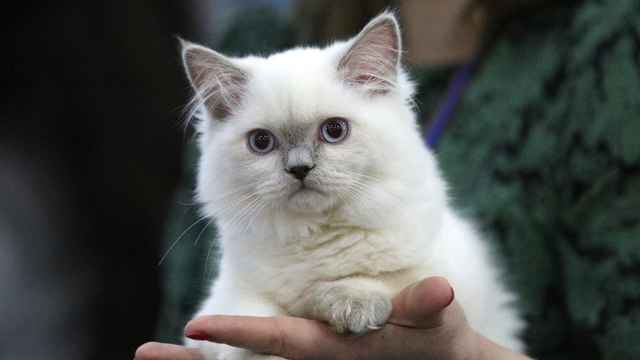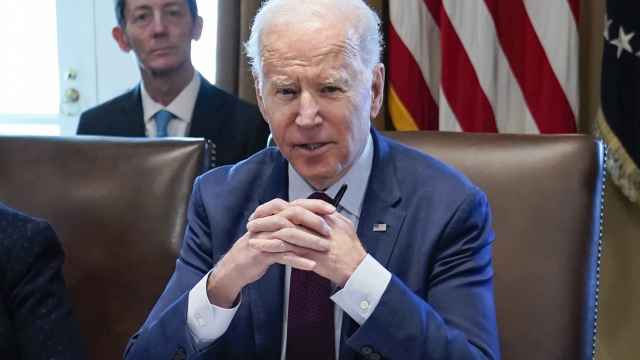When Russian Andrei Kroo left his home in Ceske Budejovice last week, a city in the south of Czech Republic populated by a small Russian diaspora, he found the words “Here are Russians - KGB” scrawled onto the front of his home.
“Of course, I was outraged by this, but I can understand it. When Russia is waging war in Europe, every reasonable person should protest, but of course only an idiot would protest in this way,” Kroo told The Moscow Times.
Since Vladimir Putin ordered Russian troops over the Ukrainian border last week, in what is widely considered to be an illegal and full-scale invasion, Russian and Russian-speaking diasporas living abroad have seen an uptick in anti-Russian sentiment.
An outpouring of emotion by the international community, who have watched Ukrainains flee their home country in waves, with an estimated 1 million refugees pouring into Eastern Europe in the last week, has left many feeling a bitter contempt towards Russia.
Many Russians though feel that this contempt is unfairly directed at Russian citizens, many who do not condone the actions of their government.
“It's very upsetting what is happening in Ukraine, but of course it's all about politics but some people decide to take it out on a peaceful person,” one Russian-speaking Uzbek told The Moscow Times, after being likened to Putin by a shopkeeper in London who overheard her speaking Russian.
“I immigrated because murderers and thieves siezed power in Russia,” said Kroo, a property developer originally from Omsk who fled the country over 20 years ago. “We have to oppose the actions of Putin and his criminal entourage.”
Yet many Russians living abroad are now being held responsible for a regime that they wanted to escape.
Russian food stores in Germany and the Czech Republic reported cases of vandalism, classrooms in both Australia and the U.K. have been forced to put in measures to safeguard Russian and Ukrainian students, and outside a cafe in Portugal a sign appeared with the words written “Russians will not be served.”
“That’s the thing, we all are scared,” Natalia Khetagurova, a Russian from Vladikavkaz who now lives in London, told The Moscow Times.
Not only are Russians fearing a spike in anti-Russian sentiment, but as Western-sanctions in retaliation to Moscow’s invasion of Ukraine become more far-reaching, Khetagurova fears that Russians living in the West may be next to feel the wrath of the West’s crackdown on Russia.
“I feel like at any moment I can be asked to pack my suitcases and told to get out of the country,” she said.
Sanctions originally aimed at Russian financial institutions are also aimed at Russia’s cultural and sporting spheres, triggering a trend of shutting out Russian culture and art by European institutions in the West in an attempt to show solidarity with Ukraine.
Forthcoming performances across Europe by the Russian State Ballet Company of Siberia were canceled. Critics have called for the ousting of the popular children’s cartoon show Masha and the Bear stating it is part of Russia’s “propaganda machine.” Glasgow and Stockholm film festivals have pulled Russian movies from this year’s programs.
“These are secondary effects of the international isolation that Putin pushed Russia into,” said political-risk analyst Dionis Cenusa, who focuses on sanctions and security. “This damages not only diplomatic, political or economic ties, but also Russian soft power represented by its culture and language,” Cenusa told The Moscow Times.
Russian officials have repeatedly slammed the mounting sanctions against Russia, with Foreign Minister Sergei Lavrov admitting Wednesday he was surprised by the West’s decision to sanction cultural figures.
“We were ready for sanctions, but we did not expect that they would affect athletes, intellectuals, actors, and media figures,” Lavrov said.
“There is a line beyond which economic sanctions to press Putin to end this awful war bleed into cultural sanctions with a high likelihood of stoking unnecessary anti-Russian sentiment,” a Twitter user wrote in response to The Cat Federation banning Russian cats from its shows.
For Russians living abroad, opinions about the crackdown of Russian culture are divided. For Kroo, it is necessary to draw a line between state and non-state linked personnel.
“It’s necessary to isolate cultural figures who openly support the Kremlin's policy,” Kroo said.
Yet for Khetagurova, any measure taken that may put pressure on Russians to voice discontent at home and bring a stop to the war should be taken, no matter how tough it is to take.
“It’s extremely sad, but if there is no other way to let our government know that what they are doing is wrong, then we have to deal with it.”
A Message from The Moscow Times:
Dear readers,
We are facing unprecedented challenges. Russia's Prosecutor General's Office has designated The Moscow Times as an "undesirable" organization, criminalizing our work and putting our staff at risk of prosecution. This follows our earlier unjust labeling as a "foreign agent."
These actions are direct attempts to silence independent journalism in Russia. The authorities claim our work "discredits the decisions of the Russian leadership." We see things differently: we strive to provide accurate, unbiased reporting on Russia.
We, the journalists of The Moscow Times, refuse to be silenced. But to continue our work, we need your help.
Your support, no matter how small, makes a world of difference. If you can, please support us monthly starting from just $2. It's quick to set up, and every contribution makes a significant impact.
By supporting The Moscow Times, you're defending open, independent journalism in the face of repression. Thank you for standing with us.
Remind me later.







